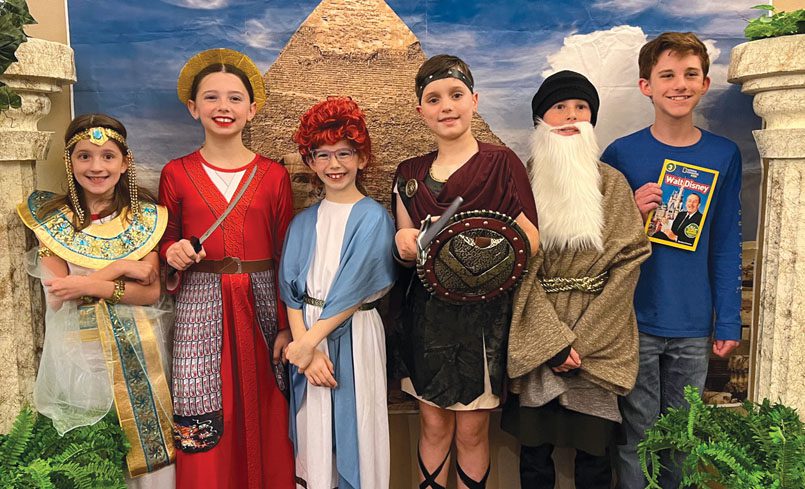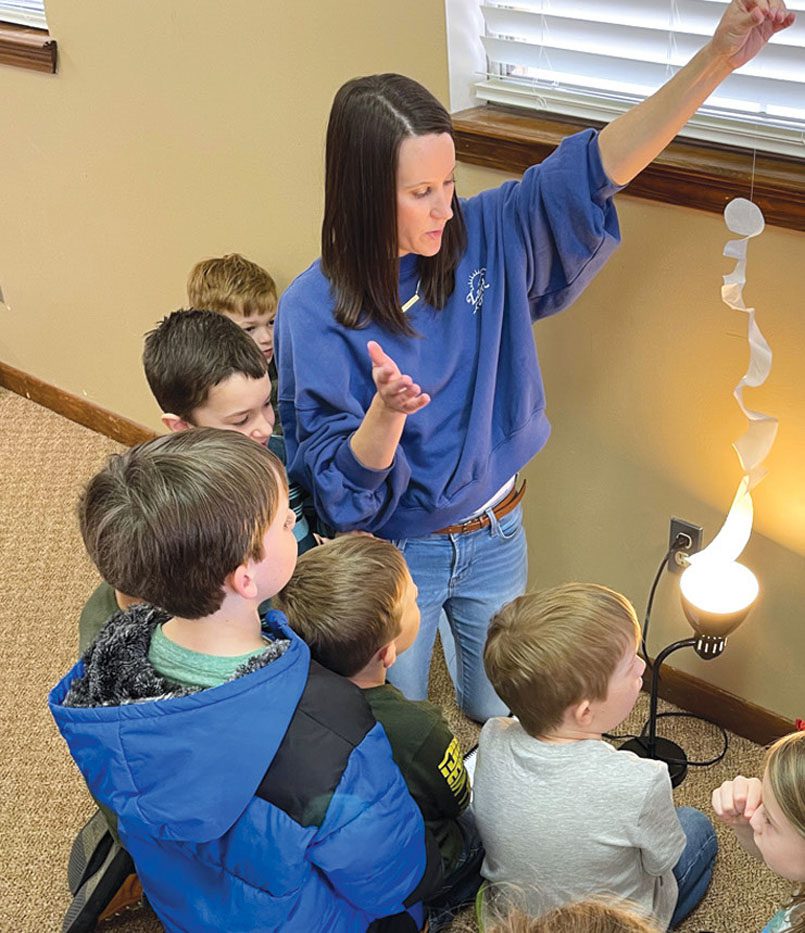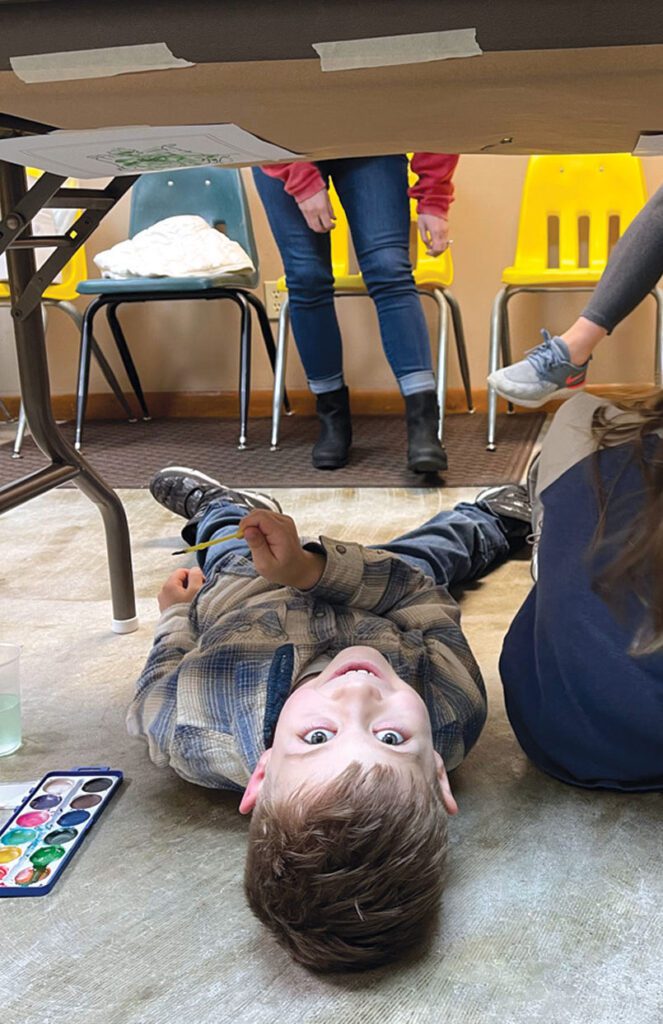02 Aug 2022 Homeschooling options from a homeschool director
By Brittany Gilbert
Homeschool is in more demand than ever before. The past few years especially have prompted families to seek information for schooling at home. I want to encourage families that pandemic schooling isn’t the same as homeschooling. If you feel like you can’t homeschool because of your experience with virtual public school, that isn’t at all what the typical homeschool student experiences. However, if you find yourself interested in learning what homeschool is all about and maybe some different methods or programs to check out, I hope to answer a lot of those questions here.

One of the first and most popular questions I am asked as a homeschool mom is, “What curriculum do you use?” or “What curriculum should I get?” These questions are important, but they are not the most important. In fact, they’re pretty far down the list. The first question you should ask yourself is what you want out of your homeschool. This includes the values that your family has for your homeschool and even what method you want to pursue.
The freedom to choose how you want your kids to learn is one of the very best things about homeschool. If you are looking for a “school at home” style, the traditional method may be best. This means you find a curriculum for each subject you may find in a public-school setting. If you’re wanting support from the public school system, ARVA (Arkansas Virtual Academy) is powered by K12 and is an online public-school program. ARVA functions like its own school district, but work is completed entirely online. The program sends materials, and even electronic devices like laptops, to its students. There is standardized testing, and students are able to sign up for different classes, depending on grade level and interests.

If you’re wanting a traditional method of homeschool but you want to be the lead teacher and provide a curriculum outside of the public school system, there are many curricula available to purchase. You’ll want to consider whether or not your family wants to join a local co-op. In the 501 area, there are many co-ops, which are groups of families that meet together to achieve common goals. There are recreational co-ops, and there are educational ones. The parents volunteer to teach based on their strengths or interests, and students are learning the same material in a class of peers. The parents choose from the hundreds of curricula that are out there and act as a teacher to their class. Again, each co-op may operate a little differently, so visiting and understanding how each works will be important in your decision making. The first thing to know, however, is what you want your kids to get out of it. Also, in this traditional co-op, parents are usually required to teach or assist.
Another option is the classical method. According to the Classical Academic Press, “Classical education is like a very large museum with many beautiful, wonder-filled rooms that could be studied over a lifetime. It is a long tradition of education that has emphasized the seeking after of truth, goodness and beauty.” Classical education teaches children how to learn and how to think. It focuses on the trivium, which are the learning stages in which a child learns and grows. These stages are grammar, dialectic, and rhetoric.

To explain this process, think about the alphabet. A toddler learns the ABC’s by singing the song. They don’t know that each letter has a purpose, but they can easily memorize the song and recite it for a few years before doing anything else with it (the grammar stage). Eventually though, they build on that foundational memorization and learn that each letter makes a sound. They can’t read yet, but they have the tools to start putting it together by asking questions and digging deeper (dialectic stage). Eventually, the sounds come together, and this dialectic stage turns into the rhetoric stage, where they are reading longer and more challenging books and can even teach this process to someone else. These three stages are used in classical education in all areas of learning. Also, in classical education, most of the subjects are woven together. You usually see fewer curricula and there are local communities that learn together using this method as well.
Another method of homeschool to consider is the unschool method. Unschooling is based on a child’s individual personality and interests. This method emphasizes that learning happens everywhere, not just in designated spaces or with specific curricula. Not every homeschool is alike, no matter what method you choose, so while some unschoolers choose curricula based on their child’s interests, many do not. The idea is that children will learn whenever they are ready, and they will learn more and it will be much easier whenever they are interested, invested and even in charge of what they learn.
Whether or not you choose to be part of a community or co-op, the important piece is community. Most homeschoolers I know will tell you that socialization is not a problem. In fact, most of us find that we have way too much socialization and have to make goals to stay at home more. There are so many opportunities available, and if you aren’t careful, you will overcrowd your days with play dates and activities. You can join a local co-op or classical community, or you can simply meet other homeschool families and have playdates. I’m not sure how other co-ops work, but I know one of the biggest benefits of our homeschool community is that our kids are socializing with kids and adults of all ages rather than just with kids their age. It’s such a highlight of the homeschool world to witness your kids carry on conversations with people of all ages. I cannot emphasize enough that whenever you choose to homeschool, socialization is not nearly as big of a problem as it can be made out to be.
If you have more questions about homeschooling, please check out my podcast, “The Deeply Rooted Homeschool.”
- Homeschooling options from a homeschool director - August 2, 2022
- Sharing your faith - March 31, 2022
- Searcy’s Carmichael Center home to many Santas - November 30, 2021









